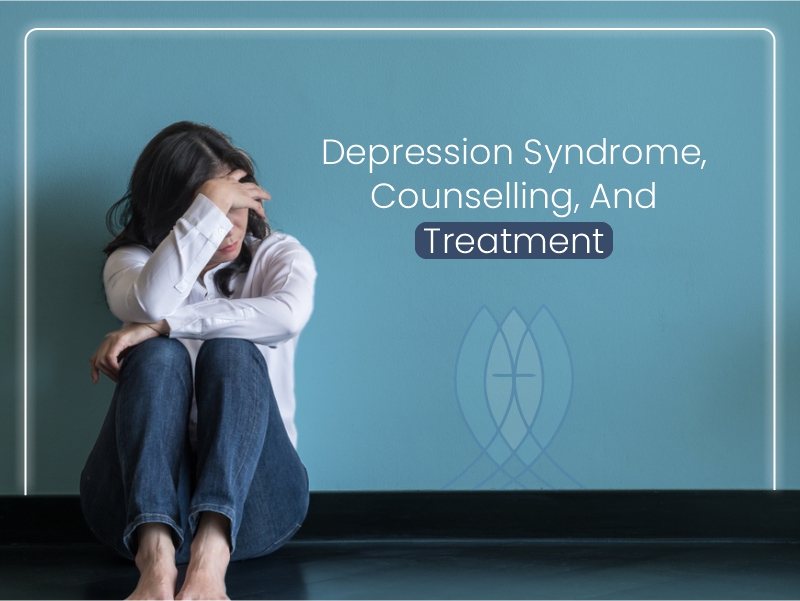Reclaim control of your life with counselling for anxiety support today
Discovering Different Techniques in Counselling for Anxiousness Problem for Enduring Change
When taking on stress and anxiety conditions, it's vital to discover a variety of therapy techniques. Each technique provides unique insights and tools to aid you handle your signs and symptoms properly. You could find that incorporating methods can produce the most effective results. Comprehending the nuances of these strategies is vital to cultivating enduring adjustment. What if the ideal mix could launch a brand-new degree of psychological wellness for you?
Comprehending Anxiety Disorders: A Brief Introduction
Anxiousness disorders, which affect millions of people worldwide, can considerably influence life. You might experience overwhelming sensations of fear or fret that appear unmanageable. These sensations can result in physical symptoms like a racing heart, sweating, or even dizziness. Typical kinds of anxiousness problems include generalised anxiousness condition, panic condition, and social anxiousness condition. Each has unique indications, however they all share a propensity to disrupt your regular and relationships.Understanding the source of your anxiousness is essential. It could originate from genetics, brain chemistry, or life experiences. Identifying your triggers can aid you handle your responses much better. It is necessary to keep in mind that you're not alone in this battle. Lots of people encounter similar obstacles, and looking for assistance is a strong action toward feeling much better. By discovering anxiety disorders, you're currently on the course to understanding and managing your condition much more properly.
Cognitive-Behavioral Treatment: Challenging Unfavorable Thought Patterns

Determining Adverse Thought Triggers
When you encounter minutes of distress, acknowledging the particular triggers behind your negative thoughts can be vital in handling anxiousness. Start by paying attention to circumstances that prompt feelings of concern or concern. Is it a crowded area, a future target date, or a conversation with specific people? Jot down these circumstances in a journal. This will assist you recognize patterns in your reasoning. Likewise, notice physical sensations that accompany your negative ideas, like an auto racing heart or rigidity in your chest. By identifying these triggers, you obtain understanding into what's fueling your stress and anxiety. Understanding these links is the very first step in testing those thoughts and inevitably restoring control over your emotional feedbacks.

Changing Ideas With Positives
Challenging adverse idea patterns is an important action in transforming your attitude and minimizing anxiety. You may commonly locate on your own trapped in cycles of self-doubt or disastrous thinking. Rather than letting these ideas determine your sensations, practice replacing them with favorable affirmations or realistic options. When you think, "I can't handle this," change it to, "I can handle obstacles one step at a time." This easy change can substantially impact your emotional state. Frequently identifying and responding to these unfavorable thoughts aids create a much healthier inner dialogue. Bear in mind, it takes time and effort, but continually exercising this technique can cause long-term change, encouraging you to face anxiety with restored confidence and durability
Building Coping Approaches With Each Other
Changing negative ideas is only the beginning of taking care of anxiousness effectively. To develop long lasting change, you require to build coping strategies that empower you. Cognitive-Behavioral Therapy (CBT) helps you recognize and challenge those unhelpful idea patterns. With each other, you and your counselor can check out exactly how these ideas influence your feelings and behaviors.Start by establishing sensible strategies, like journaling or mindfulness workouts, that permit you to challenge anxiety head-on. When you encounter your anxieties slowly, you'll learn to respond in a different way.

Mindfulness and Acceptance-Based Approaches: Growing Present-Moment Understanding
As you navigate the intricacies of stress and anxiety, integrating mindfulness and acceptance-based approaches can considerably boost your capacity to cultivate present-moment recognition. By concentrating on the right here and now, you'll discover that you can observe your ideas and sensations without judgment. This technique helps you acknowledge your stress and anxiety without feeling overwhelmed by it.Engaging in mindfulness exercises, such as deep breathing, body scans, or assisted meditations, allows you to ground on your own in your present experience. Acceptance-based techniques motivate you to accept your emotions as opposed to combat versus them. They shed their power over you.Incorporating these practices right into your day-to-day regimen can change how you respond to stress and anxiety when you approve your sensations. You'll develop durability and learn to browse difficult situations with greater convenience. Ultimately, cultivating present-moment recognition lays the structure for long-term change, equipping you to lead a much more fulfilling life.
Direct Exposure Therapy: Facing Concerns Progressively
Exposure treatment helps you challenge your worries in a progressive means, making it less overwhelming. You'll find out techniques to encounter anxiety-provoking scenarios step by action, while likewise developing coping approaches to manage your reactions. This technique equips you to take control and reduce anxiety over time.
Progressive Exposure Strategies
When facing anxiousness, slowly challenging your concerns can be a powerful means to regain control. This method, referred to as steady exposure, entails slowly exposing yourself to the situations or items that cause your stress and anxiety. Beginning with much less daunting circumstances and slowly function your means up to more tough ones. If you're terrified of public talking, you might begin by speaking in front of a mirror, then progress to sharing ideas with a friend, and at some point address a little team. Each step helps desensitize you to the worry, constructing your confidence with time. Remember, it's important to speed yourself and celebrate small victories as you move with this process, enhancing your ability to handle anxiousness efficiently.
Structure Coping Techniques
Structure effective coping methods is necessary for managing anxiousness, especially as you challenge your worries slowly. One powerful technique is direct exposure therapy, where you start by facing your worries in a regulated fashion. Begin with much less frightening circumstances and gradually work your method approximately even more difficult situations. This steady exposure assists desensitize you to anxiety causes, making them less overwhelming.Incorporate leisure strategies, such as deep breathing or mindfulness, to relax your mind during direct exposure. Track your progress, commemorating little success along the way to improve your confidence. Keep in mind, it's okay to take your time; the objective isn't perfection however constant renovation. By developing these strategies, you'll equip on your own to navigate anxiousness and embrace life more totally.
Psychodynamic Therapy: Revealing Origin Causes of Anxiousness
Psychodynamic therapy discovers the subconscious mind, revealing the source of your anxiety - Counseling services for anxiety. By examining your ideas, feelings, and past experiences, this technique aids you discover underlying disputes and unsettled issues that might add to your present stress and anxiety. You'll work with a therapist to investigate youth experiences, relationships, and emotional patterns that shape your responses today.As you acquire understanding into these deeper layers of your mind, you'll start to identify how past events affect your existing actions. This understanding can cause catharsis, allowing you to refine emotions you might have suppressed.Through the restorative connection, you can additionally identify protection devices that may have established over time, using a more clear course to change. Inevitably, psychodynamic treatment furnishes you with the devices to resolve your anxiety at its core, promoting lasting transformation in your emotional health
Holistic and integrative Methods: Incorporating Techniques for Greater Efficiency
Incorporating different healing strategies can improve your trip towards taking care of anxiousness better. By integrating components from cognitive-behavioral treatment, mindfulness practices, and holistic approaches, you can develop a personalized technique that resolves your distinct needs. For example, you could utilize cognitive-behavioral techniques to test unfavorable thought patterns while integrating mindfulness exercises to ground yourself in the here and now moment.Additionally, checking out holistic practices such as yoga exercise or meditation can promote leisure and lower stress and anxiety signs. This blend allows you to establish better self-awareness and resilience.Experimenting with these diverse methods can help you discover what resonates most with you. Remember, it has to do with discovering a synergy that works, instead than sticking to a solitary approach. This integrative method not just offers instant alleviation but likewise promotes long-term abilities for handling anxiousness, empowering you to redeem control over your life.
The Function of Support Systems: Building Resilience Via Connection
While it might seem that taking care of anxiousness is a solitary trip, having a strong support system can play a vital duty in your strength. Surrounding yourself with compassionate good friends, family members, or support teams produces a risk-free area where you can honestly share your experiences and feelings. You remind on your own that you're not alone in this struggle.These connections offer inspiration and can offer functional coping approaches that have actually functioned for others when you connect with others. It's also a chance to obtain viewpoint; friends can aid you see situations in different ways, minimizing sensations of isolation.Moreover, psychological assistance fosters a feeling of belonging, which can greatly alleviate anxiousness signs. By leaning on your support group, you can build resilience and deal with difficulties more effectively. Remember, connecting for aid suggests strength, and it can make all the difference in your journey towards managing stress and anxiety.
Regularly Asked Questions
What Are the Typical Symptoms of Stress And Anxiety Disorders?
You could experience uneasyness, fatigue, difficulty focusing, irritation, muscle tension, and sleep disturbances. Physical signs and symptoms can include fast heart beat, sweating, and trembling. Acknowledging these signs early can help you seek ideal assistance and treatment.

Exactly How Long Does Treatment Generally Last for Anxiety Problems?
Treatment for anxiety problems commonly lasts anywhere from a couple of weeks to several months. It really relies on your individual demands, progression, and the methods your specialist makes use of to help you manage your stress and anxiety effectively.
Can Drug Be Made Use Of Alongside Therapy for Anxiety?
Yes, drug can certainly be used together with therapy for anxiety. Incorporating both approaches commonly enhances treatment performance, assisting you take care of signs and symptoms while discovering underlying problems with therapy. Constantly consult your doctor for customized guidance.
Are There Self-Help Methods for Handling Anxiousness?
Yes, there are several self-help strategies for taking care of stress and anxiety. You can practice mindfulness, take part in routine workout, keep a balanced diet, establish a regular, and use deep breathing methods to help minimize stress and anxiety signs and symptoms properly.
How Do I Know if I Need Specialist Assistance for Anxiousness?
You should think about seeking specialist help for anxiety if it disrupts every day life, triggers significant distress, or if self-help approaches aren't functioning. Depend on your impulses; connecting can lead to far better coping skills and support. Common kinds of anxiety conditions consist of generalised anxiety problem, panic condition, and social stress and anxiety disorder. When you run into minutes of distress, identifying the details triggers behind your negative ideas can be important in handling stress and anxiety. Changing adverse ideas is just the beginning of handling anxiousness successfully. By examining your ideas, sensations, and more info past experiences, this strategy assists you uncover underlying problems and unresolved problems that might add to your existing stress and anxiety. It's also an opportunity to acquire viewpoint; close friends can aid you see situations differently, minimizing feelings of isolation (Counseling services for anxiety).Moreover, emotional support fosters a sense of belonging, which can significantly relieve stress and anxiety signs and symptoms